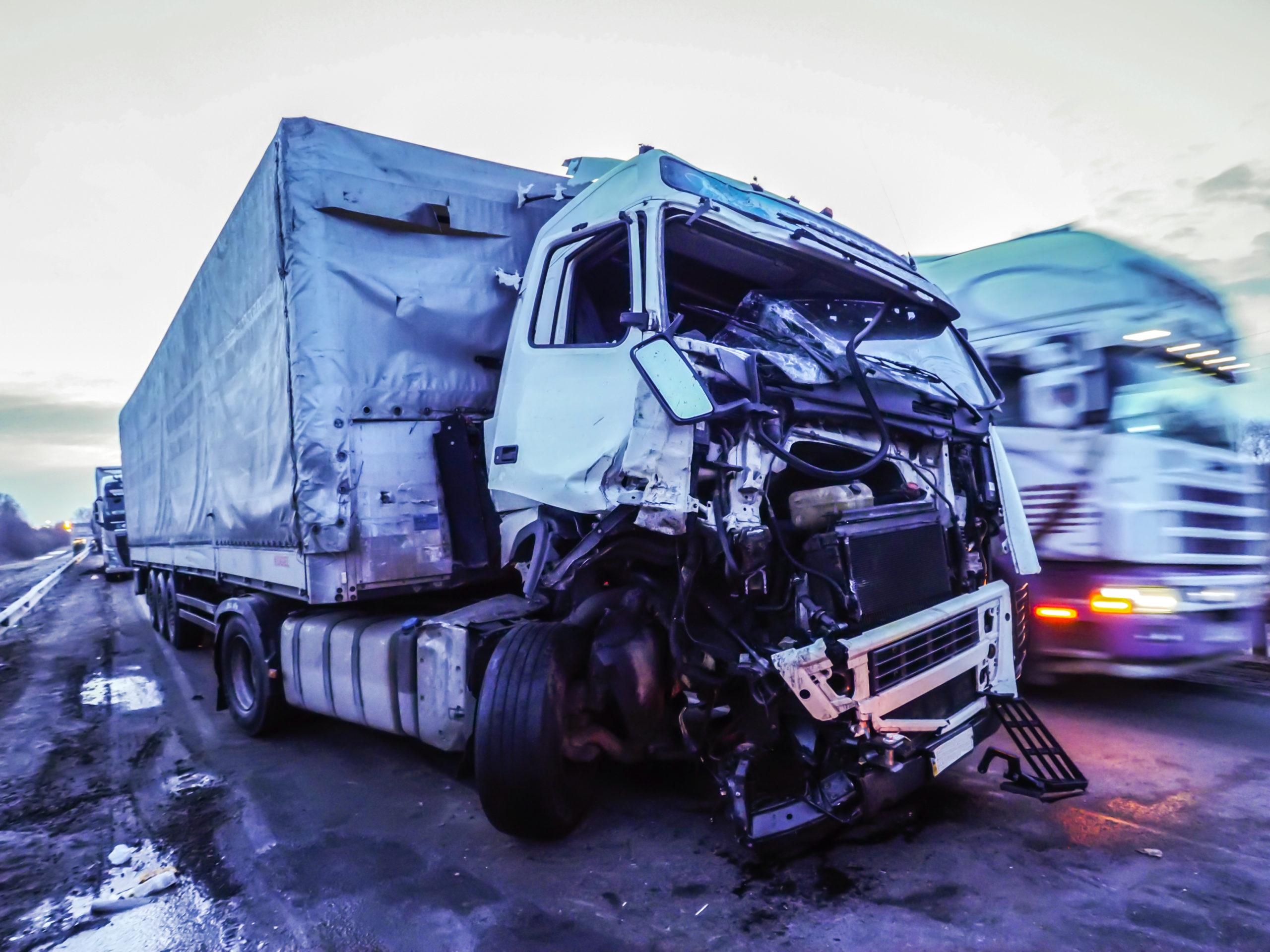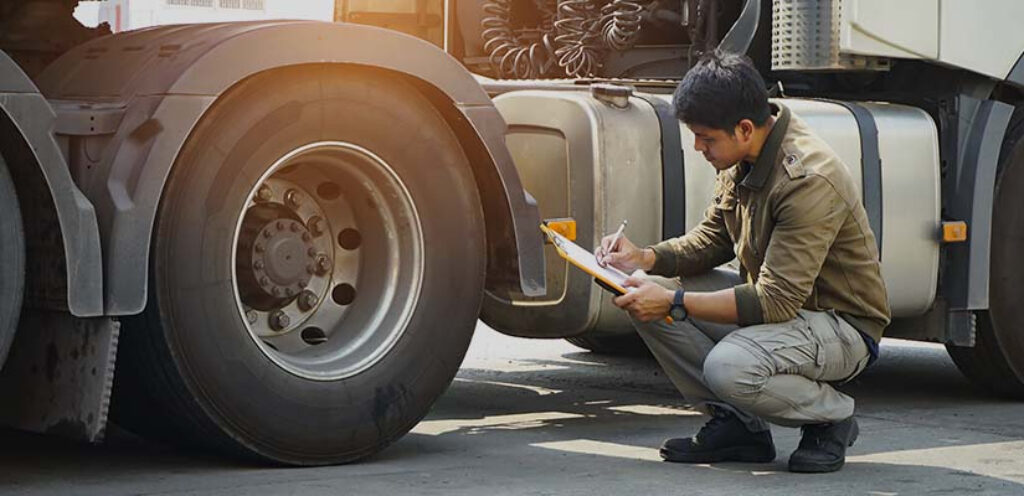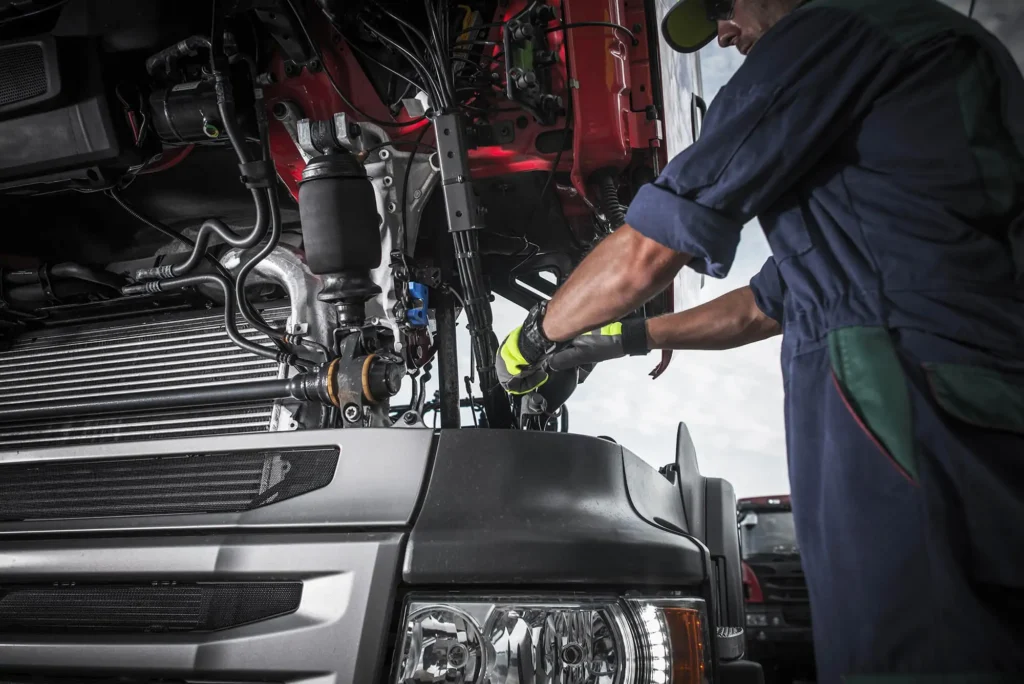
Understanding truck accident laws is important for anyone who has been involved in a collision with a commercial truck. The legalities of truck accidents are multifaceted and nuanced, encompassing industry regulations, liability, insurance requirements, and more. A successful truck accident claim requires a thorough understanding of these laws, which can only be acquired by working with an experienced truck accident lawyer.
Table of Contents
Understanding Truck Accident Liability
Understanding how liability is assigned in truck accident cases is essential to understanding the legal process. When determining who is liable for a truck accident, there are numerous factors to be considered. Parties potentially liable for a commercial truck accident include:
The Truck Operator

Source: conradattorneys.com
The truck operator almost always shares in liability for the accident. Their behavior and their adherence to safety regulations and traffic laws will play a key role in establishing fault. Proof of speeding, distracted driving, fatigued driving, or any other negligent behaviors can establish the truck operator’s liability in an accident.
The Freight Company
As employers of truck operators, freight companies share a considerable degree of responsibility. They are expected to hire properly trained and qualified truck drivers and ensure that their workers obey safety guidelines at all times. If the freight company failed in its duty to properly investigate, train, maintain, or supervise its fleet, it could share in liability for an accident.
A Parts Manufacturer
The manufacturers of the truck or any of its components could be held responsible if a mechanical defect or failure caused or contributed to an accident. Establishing manufacturer liability involves analyzing the rig’s design, maintenance, and manufacturing, as well as identifying any defective parts that could have played a role in the crash.
Other Entities in the Trucking Industry
Besides truck operators and freight companies, numerous other entities involved in the trucking industry could also potentially be liable. Cargo loaders, for instance, are responsible for making sure that a truck’s payload is loaded and secured in accordance with safety regulations since improper loading techniques can cause serious accidents. Maintenance people also play an essential part in trucking operations. If negligent maintenance contributed to the crash, they could very well be held responsible as well.
Federal Motor Carrier Safety Regulations

Source: lytx.com
The foundation of trucking laws in the United States is the Federal Motor Carrier Safety Regulations. These regulations were developed by the Federal Motor Carrier Safety Administration in order to provide comprehensive safety standards and guidelines that would enhance the safety of all commercial vehicles and those around them.
The most notable regulations that could impact your truck accident case include:
Hours of Service
Possibly the most crucial and often disregarded FMCSA guideline is the strict regulation of consecutive driving hours and mandatory breaks. These regulations were created to help prevent truck drivers from operating the rig while fatigued. Driver fatigue has been a significant contributing factor to truck accidents nationwide. Understanding the Hours of Service regulations is paramount when determining accident liability and building a strong case.
Truck Maintenance

Source: ecodocspro.com
Truck maintenance is another crucial factor that has a great deal of bearing on the frequency of trucking accidents. Trucks that are poorly maintained can encounter mechanical failures that lead to devastating accidents. Reviewing the maintenance logs of a truck involved in a collision is important in accurately establishing liability and determining whether negligent maintenance was a factor in the crash. The FMCSR lays out very specific requirements for truck inspections, maintenance, and safety protocols. Adherence to these regulations is vital in minimizing accidents caused by equipment malfunctions or mechanical failures.
Freight Loading and Securement
Improperly secured or poorly loaded freight can pose a serious threat on the open road and potentially cause a preventable accident. Regulations pertaining to the loading and securement of cargo exist to ensure that all freight is safely loaded and secured in order to prevent collisions and maintain roadway safety. These guidelines deal with factors including weight restrictions, weight distribution, securement methods, and compliance with loading protocols.
Seeking Legal Counsel
The most important step to understanding and efficiently dealing with trucking accident laws is seeking qualified legal counsel. Trucking accidents are a leading cause of catastrophic injury cases in the United States. So, an experienced truck accident lawyer who specializes in commercial trucking accident cases is key since they have experience in navigating the intricacies of these types of personal injury cases. A few of the reasons you should consider working with a qualified truck accident attorney after being involved in a serious truck accident include:
They Understand the Complications That Truck Accident Cases Bring

Source: merkel-cocke.com
Truck accident cases are infinitely more complex than cases involving standard passenger vehicles. They often involve multiple contributing factors, such as state and federal regulation violations, multi-party liability, and complicated insurance policies. An attorney who is well-versed in trucking accident cases will know the most effective methods of dealing with these complexities while building a strong case for compensation.
They Can Negotiate With Multiple Parties on Your Behalf
Truck accidents typically involve various parties, including the truck driver, trucking company, insurance companies, and potentially other entities. Negotiating with these entities requires a nuanced understanding of the law and excellent negotiation skills. A lawyer experienced in truck accident cases can effectively advocate on your behalf, ensuring your rights are protected and securing a fair settlement.
Accurately Calculate Your Damages

Source: dmaeconomics.com
Medical expenses, lost earnings, pain and suffering, property damage, and future medical expenses are just a few of the components that will factor into how much compensation you could be entitled to. Correctly calculating this number is a lot more complicated than it sounds. A skilled attorney can assess your damages and form a strong legal strategy that will maximize your financial recovery.
Without experienced legal representation, you will quickly find yourself at the mercy of the truck driver, their employer, and their teams of attorneys and insurance agents. A good lawyer can ensure your rights and interests are protected and give you your best chance at collecting the compensation you deserve.







